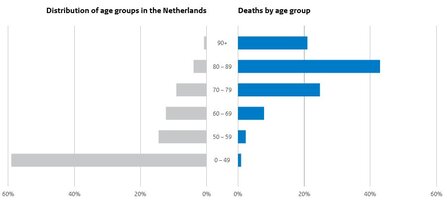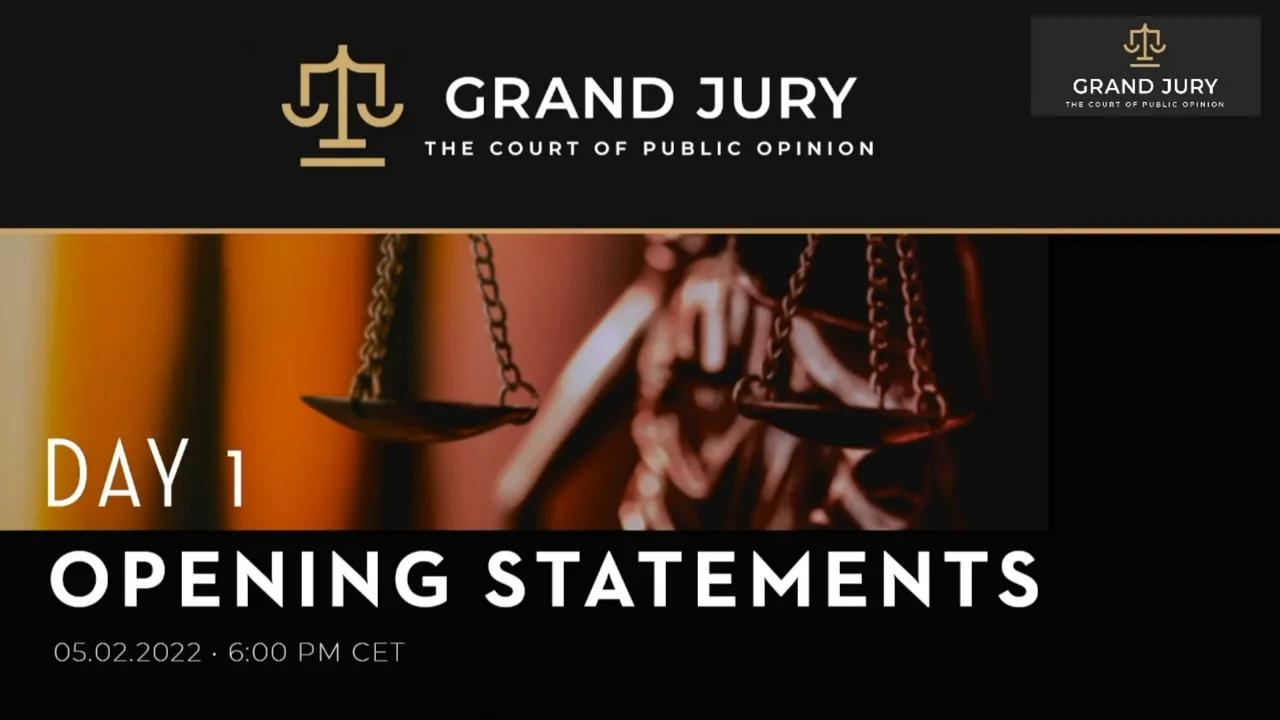Perhaps you should read the comments on the article you link to there:
I actually linked to this:
https://www.mdpi.com/1467-3045/44/3/73/htm
And I this page doesn't provide nicely linked comments like pubmed.
...(didn't put all quoted text here, too long)..
Thanks for providing such detailed comments.
Facts are neither optimistic or pessimistic. Interpretations of facts may be, and some people, even from teh beginning, were making wild and unsubstantiated interpretations, otherwise known as 'facts'.
fact: a thing that is known or proved to be true. Claiming anything to be proven to be true in the beginning of covid was risky. There is a difference between highly-likely and a fact.
Deciding what is a COVID-19 caused death is difficult.
It was the main reason for all the measures taken. Yes, people die from covid. But a lot of (young) people still believe they might die from covid, while reality shows the chance of death due to covid is more unlikely then likely. Especially for younger people. Everyone dies eventually, and the risk increases a lot when your older. (Not saying it's a breeze to have covid, but it's not 3% mortality for all ages)
These reported deaths include these difficult to distinguish numbers. A discussion here:
https://blog.ons.gov.uk/2022/01/26/...have-died-from-covid-19-is-highly-misleading/

The RS in VAERS stands for 'reporting system', and an entry in VAERS says very little about the cause of the symptoms reported. In any normal day, some people experience unexpected symptoms, and it is entirely natural that they associate unexpected symptoms with recent medical events, such as a vaccination. However, correlation is not causation. People report all sorts of weird and wonderful stuff in VAERS, and there are organised campaigns to push entries of certain types, so it is a noisy signal at best. It is certainly not high quality epidemiological data. That gets generated once people (experts) have looked at VAERS and other sources of information. An experienced symptom, however real, is not necessarily a true 'side effect' of vaccination.
Everyone can, and is motivated, to report symptoms in VAERS. And some are required to do this: "Healthcare providers who administer COVID-19 vaccines are
required by law to report to VAERS the following after vaccination:" (from VAERS).
There is no indication massive entries are reported to VAERS: "'We don't have evidence that there is widespread fraud or gaming of the system,' says Tom Shimabukuro, deputy director of CDC's Immunization Safety Office, which oversees VAERS. 'We have to balance keeping VAERS an open system and getting as much information as we can on vaccine safety against potential data quality problems.'" source:
https://www.science.org/content/art...government-database-side-effects-scare-public
Sure correlation isn't causation, but I assume medical professionals know what they are reporting to VAERS, and these signals are equally marked as 'invalid' making it harder to be taken seriously as a person who actually encounters a side-effect.
Sigh. Immunology 101 here. Your body produces antigens to attach to non-self 'stuff' found in the body, which mark it for destruction and disposal. In the absence of non-self stuff, the level of antigens naturally drops slowly. However, certain other cells in the immune system act as 'memory cells', so that if the non-self stuff turns up again, after a period of two to three days, lots of new antigens can be generated. So yes, the antigen based immunity generated by the vaccine wears off. This is normal. The memory cell immunity takes a lot longer to wear off. It might even last a lifetime. The memory-cell based immunity doesn't stop you from getting infected, but it speeds up the body's reaction to the second and subsequent infection, so you get less sick.
Exactly. But stating the obvious in the first year of the pandemic would get you cancelled. Just like stating the vaccine could be less effective to newer variants.
No vaccinations are not 100% safe. Shock. Horror. However, they are far, far safer than the disease you are being vaccinated against. Yes, a small number of people have bad reactions. The most common severe reaction is anaphylactic shock, which, is why you have to wait after vaccination for 15-20 minutes in case you suffer it. It is eminently treatable with adrenalin injections, when done early enough. The extremely rare blood-clotting reactions seen in some people after Astra-Zeneca vaccinations are also treatable. It was, I believe, some German researchers who identified the problem first. This is why putting correct and accurate data into systems like VAERS is important. Note, VAERS is reports of correlated symptoms, not side effects,
Stating there was any risk in taking the vaccine could get you cancelled also. It's absurd to claim there is no risk to taking a vaccine, just like there is a (tiny) risk in taking a paracetamol (while we all agree it's safe in general).
Reports from FDA show that during the Pfizer trails ~1200 adverse effects were reported: does this mean it's unsafe, no. But it at least is a signal that could have been shared with medical professionals, so they would take claims from impacted people more seriously.
Taking the vaccine when in a higher age or having other risk factors is surely a better choice. But I don't see this choice is equally true for babies, kids, or boys ~14 years old. Myocarditis is still suggested to be a mild inconvenience, while scar tissue in your heart is not easy to heal.
Not demonstrated. Poor experimental protocol does not exclude contamination. It might be technically possible, but its also technically possible for you to quantum tunnel through your living room wall.
While I can agree it's not 100% clear what the effects are, rating it as implausible I would not do yet. Surely more research is needed but this one didn't show it wasn't:
https://www.mdpi.com/1467-3045/44/3/73/htm
Depends what you mean by work. On a population level, they are effective enough to reduce the rate of hospital admission by enough that the health services do not get completely overloaded, and people die in the streets. That's a pretty good result.
I agree. Doesn't mean it's 100% safe and we should mandate (force) everyone to take it, even if they had prior adverse effects with their first dose. And it also doesn't mean it works as well on newer variants, even though we had near perfect results with the original covid.
Also any treatment for covid was mostly ignored, while vaccination only reduced the likelihood of getting sick or seriously sick. It would have been nice to see all ways to prevent serious illness due to covid being advocated, not only a vaccine.
Balance in the media does not mean you give equal weight to crackpot theories and the consensus of scientific research. Media reporting of the science around COVID-19 has been abysmal.
The bias and perverse incentive to highlight the extremes in media is probably more clear since they have to compete with other sources of online media. An unbiased report will probably be read less then a breaking news article claiming vaccines are best/worst.
I like that I see all kinds of opinions on the forum, it at least gives you a better way to shape your opinion, even if you might not agree.
Science is falsifiable (Popper). Pseudo-science (or scientism) sometime looks like science, takes on the trappings of science, but even when making falsifiable predictions, carries on telling falsehoods even when shown to be wrong, citing 'fake news', and incredible conspiracy theories. Not every maverick is a Galileo. Most are just wrong, and often peddle dangerous beliefs and practices.
While I agree there are a lot of outrageous claims to be found on the internet, there was never a time in my life conspiracy theories were more backed-up by evidence then now.
Could that evidence be wrong, sure. But being able to check and have the discussion helps, and it's a trend to halt those discussions lately.
Should every concern be aired on live news: no. Should we silence every critical person, even if it's a renown scientist: also no.
And I attached a picture of a cat to cheer-up this post:


mediabiasfactcheck.com





